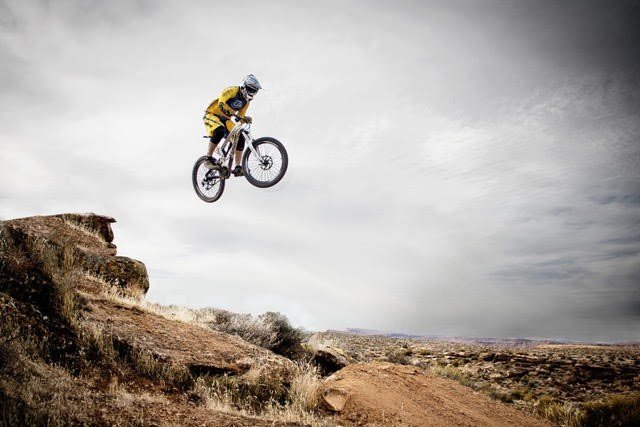
Concussion Therapy
Are You Living With The Adverse Effects Of A Head Injury?
Have you or your child suffered a concussion or Traumatic Brain Injury (TBI)?
Are you experiencing physical and cognitive symptoms, including fatigue, pain, and light sensitivity, that make it hard to concentrate?
And are other interventions not providing the relief you hoped for?
If a concussion or brain injury resulted from a nasty fall or accident, you or your child are probably struggling with lingering discomfort. In addition to being unable to focus on tasks that used to be easy for you, you may often feel dizzy, overwhelmed, and out of balance. Digestive issues sometimes develop from head injuries, so it’s possible you experience nausea, stomach aches, constipation, and/or diarrhea. You may also experience sleep issues, including insomnia and severe fatigue.
Certain mental health symptoms can also be traced back to concussions and TBIs. Perhaps you’ve noticed new signs of irritability, depression, and anxiety, including an inability to relax, socialize, or regulate your emotions. If your injury happened because of a sudden or unexpected accident, you may be struggling with acute symptoms of Post-Traumatic Stress Disorder (PTSD) like phobias and hypervigilance.
Head injuries can have lasting consequences. In some cases, it might take weeks or months to return to normal work/school, exercise, and sleep routines. But somatic therapies–including craniosacral treatment and Somatic Experiencing™–can offer relief where other concussion and TBI treatments fall short. Working together, we can move pain and tension out of your body and create new pathways for healing physical, emotional, and cognitive symptoms.
Concussions And TBIs Are Incredibly Common
It's estimated that anywhere from 1.7 to 3 million people suffer from sports- and recreation-related concussions every year.[1] Exact numbers are hard to determine, however, because many concussions go unreported. But that’s just an estimate of sports-related injuries—many concussions happen because of falls and car/motorcycle accidents. Assaults and physical abuse are other common causes.
You do not need to hit your head to sustain a concussion. If ever you are in a situation that causes your brain to bounce back and forth in your skull (like a sudden deceleration of a vehicle), you are at risk of a concussion.
Many People Don’t Get The Help They Need Following A Brain Injury
Unfortunately—especially in the world of sports—there is an expectation to tough out injuries. “No pain, no gain” has been a mantra for generations, and we don’t want to appear weak or silly for being worried about a simple head bump. Not to mention, there aren’t that many reliable tests for confirming mild concussions.
While concussion and TBI awareness are on the rise, there’s still a lot to learn. Athletes may avoid giving an honest report of symptoms due to fear of missing out on game time, and doctors don’t always properly diagnose head injuries, especially if symptoms seem related to other issues (i.e., mental health). This leaves patients feeling confused and frustrated.
There are helpful medical interventions that can ease the pain and discomfort of head injuries, including physical therapy, balance activities, and vision exercises. However, these interventions can often exacerbate symptoms, especially if you feel pressured to return to normal activities and daily obligations.
The main goal of this therapy is to address trauma at the core. Whether you are struggling with the physical, emotional, or cognitive fallout of a concussion or TBI, a therapist trained in somatic methods can help you feel better and heal at a deeper level. At Restore Resilience Therapy, I specialize in craniosacral treatment and Somatic Experiencing™ for concussions and other head and neck traumas.
Concussion And TBI Treatment At Restore Resilience Therapy
As a somatic psychotherapist with a background in physical therapy, I am uniquely qualified to help people recover from concussions and traumatic brain injuries. I’ve worked with hundreds of athletes and concussion patients to restore their physical, mental, and emotional health following head trauma, and I welcome clients of all ages to treatment.
What To Expect
The long-term goal of therapy will be not only to relieve the symptoms resulting from your concussion but to also guide your entire nervous system in returning to a natural state of ease and resilience. We will do this by utilizing effective therapeutic approaches that will heal your injury from the inside out.
Biodynamic Craniosacral Therapy (CST) is designed to directly address and release stored tension in the brain and nervous system. By palpating patterns of movement primarily in the head and spine using gentle touch, CST helps the body process the shock of a concussion naturally, tapping into its innate healing networks. To read more about CST and what to expect when using it in concussion treatment, visit my Craniosacral Therapy page .
Somatic Experiencing™ (SE) is another body-based method that directly addresses trauma. As an approach that can be facilitated with or without touch, SE is a gentle technique specifically designed to alleviate acute or old trauma and PTSD symptoms. More information about SE is available on my Somatic Experiencing™ page.
Depending on your unique symptoms, other treatments may be used. Dynamic Attachment Repatterning experience—or DARe—is a method related to SE but focused on repairing attachment and relational issues specifically. And guided imagery exercises can be helpful for re-establishing healthy, self-protective boundaries to reinforce post-concussion recovery.
Pacing will be essential to long-term healing, so we will work on your pain and symptoms incrementally and in a way that feels comfortable for you. But therapy is not intended to last indefinitely—in fact, I have seen some clients make remarkable progress (be symptom-free) in as few as 3 to 10 sessions. I am continually amazed by the body’s capacity for healing, and I look forward to helping you find your way back to a state of balance and repair.
Common Questions About Therapy For Concussions And TBIs
How long will it take me to recover from a concussion? When can I get back to school, work, and/or my sport?
The answer to this question varies greatly from person to person. Usually, the duration of therapy depends on the severity of your injury and how many concussions you have sustained previously. Other neurological factors can also complicate the healing process (for instance, if you have ADHD or migraine headaches).
In general, recovery is faster for younger people, and slower for those with several concussions and/or older injuries. But regardless of your age and experience, I will customize the treatment process to address your unique physical, cognitive, and emotional symptoms. Working together in therapy, you can achieve long-term relief from the effects of a concussion or traumatic brain injury.
I will be offering guidance along the way, based on your symptoms, to help you return to activities in a way that minimizes setbacks.
Should I be worried about permanent brain damage following a concussion?
The therapeutic process is partially designed to help prevent long-term issues associated with brain injuries. In some cases, surface-level symptoms disappear within a few weeks while “hidden” issues and compensations may continue in the brain and body. My goal as a therapist is to use the gentle yet profound methods of CST and SE to resolve the effects of concussions and TBIs on all levels—both in terms of how pain is felt in the body and how trauma is processed in the nervous system itself.
With my approach to treatment, you will heal more fully and become more resilient in mind and body, even if another injury occurs in the future.
Are there any side effects to concussion treatment using CST?
While CST is extremely gentle and safe (except for contraindications like acute fractures or bleeds, in which case I would avoid CST), occasionally clients may experience new or exacerbated symptoms temporarily. It is common to feel more fatigue after a session, especially in the beginning as the brain is working hard to heal. Symptoms like dizziness might also develop, but those typically resolve in 24 to 48 hours.
Most of my clients feel calmer, clearer, and more relaxed following their therapy sessions, allowing them to heal from their concussion more quickly.
Heal Your Head Injury From The Inside Out
Therapy using Biodynamic Craniosacral treatment and Somatic Experiencing™ will not only address symptoms related to concussions and TBIs—it has the potential to heal old traumas and injuries that have been stored up inside your body for years.
To find out more about how my approach as a therapist will help you recover from a concussion or traumatic brain injury, visit my contact page or call (303) 819 - 8839.
Testimonial
“Margaret is a gifted practitioner with a gentle, healing touch that she infuses with compassion. I immediately feel more grounded and calm, when I experience Margaret’s work. I have had severe insomnia for 18 years after sustaining a concussion from a major car accident. Having tried so many therapies, supplements, & treatments for many years, I have finally been able to sleep better! Starting craniosacral therapy with Margaret has been a true game changer for me, and I feel like a new person now that I am able to sleep better. I leave my sessions with Margaret feeling a sense of deep inner peace and relaxation, like my system has been realigned and I am able to find my center. Additionally, Margaret has provided a lot of relief to my chronic low back pain that I developed from this car accident. I am so grateful for Margaret’s healing work and I would highly recommend her to anyone who is suffering from insomnia or chronic pain.” - M.V.





